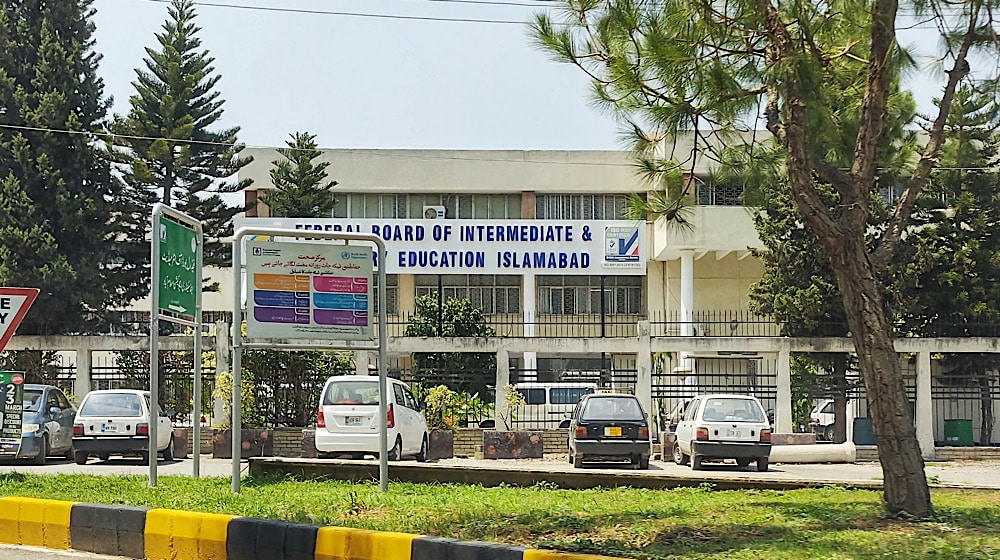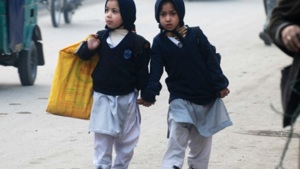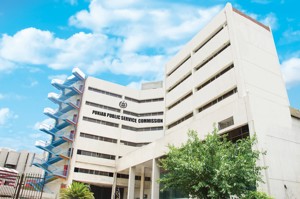.jpg)
FBISE Announces Revised 12th Class Scheme of Studies and Syllabus for HSSC-II (2025–26)
The Federal Board of Intermediate and Secondary Education (FBISE) has officially released a new Scheme of Studies and Syllabus for Grade XII (HSSC-II), introducing modernized academic structures, revised subject combinations, and a balanced focus on both theory and practical learning. This update aims to align Pakistan’s higher secondary education with global academic standards while promoting technical, vocational, and general education pathways for students.
Overview of the New HSSC Scheme
According to the new framework, all Higher Secondary School Certificate (HSSC) programs will now operate under two major categories — General Education and Technical Education — each designed to develop critical, scientific, and employable skills among youth.
Students at the intermediate level (Grades XI–XII) will be required to study four compulsory subjects and three elective subjects from their selected academic group. These groups include Pre-Medical, Pre-Engineering, General Science/Computer Science, Humanities & Social Sciences, Commerce, Home Economics, Agriculture, Veterinary Sciences, and newly added Health Science disciplines.
Compulsory Subjects and Mark Distribution
The revised structure retains the core compulsory subjects such as Urdu, English, Islamic Studies, Pakistan Studies, and Translation of the Holy Quran. Non-Muslim students will continue to study Ethics or Religious Education as alternatives.
Each subject carries a uniform marks allocation:
-
Urdu / Pakistan Culture (for foreign students): 200 marks
-
English: 200 marks
-
Islamiyat: 50 marks
-
Translation of the Holy Quran / Ethics: 100 marks
-
Pakistan Studies: 50 marks
The total marks for the HSSC remain 1200, excluding additional subjects, for which a separate transcript will be issued.
New Academic Guidelines
FBISE has also standardized academic calendars and learning durations. The new academic session for both summer and winter zones will commence in the first week of August each year. Institutions operating on a five-day week must complete 110 working days, while those on a six-day schedule will observe 150 working days annually.
Each school or college day will include 5 to 5.5 instructional hours, ensuring sufficient time for theory, lab work, and co-curricular activities. Morning assemblies, national songs, and physical activities have been made a mandatory part of the daily routine to promote patriotism and student engagement.
Balance Between Theory and Practical Learning
To improve learning outcomes, the board has adjusted the marks ratio for various streams:
-
General Education: 80% theory and 20% practical
-
Technical Education: 40% theory and 60% practical
This change reflects the growing demand for hands-on learning and applied knowledge, particularly for students enrolled in technical and skill-based programs.

Expanded Range of Elective Subjects
Students can now choose from an extended list of over 35 elective subjects, tailored to their chosen group. These include traditional disciplines such as Physics, Chemistry, Biology, Mathematics, Economics, Psychology, Sociology, Civics, and History, alongside modern options like Computer Graphics, Entrepreneurship, Event Management, Human Resource Management, Advertising, and Automation & Robotics Technology.
For Humanities and Social Sciences students, the introduction of subjects such as Philosophy, Fine Arts, Foreign Languages (Arabic, French, Chinese, German, Persian), and Regional Languages (Balochi, Pashto, Saraiki, Punjabi, Sindhi) promotes linguistic diversity and cultural inclusivity.
Technical and Skill-Based Streams
The revised syllabus introduces several technical and vocational education programs (Inter-Tech) designed to prepare students for emerging industries. Among these are trades such as:
-
Fashion Designing and Textile Construction
-
Graphic Designing and Media Production
-
Hospitality and Tourism Management
-
IoT and Data Coding
-
Beautician and Cosmetology
-
HVACR and Civil Construction Technology
Each program integrates advanced modules in Cloud Computing, Applied HVACR Systems, Tourism Management, and Media Production, ensuring students gain job-ready skills.
Allied Health Sciences Group Introduced
One of the most notable additions is the introduction of Allied Health Sciences (AHS) at the HSSC level, allowing pre-medical students to pursue early specialization in healthcare.
The AHS stream includes a wide variety of professional programs, such as:
-
Medical Laboratory Science
-
Operation Theatre Technology
-
Radiography & Ultrasound
-
Physiotherapy
-
Cardiac Care and Anesthesia Technology
-
Nursing, Midwifery, and Public Health
Each program combines basic medical sciences, applied sciences, and practical training, aligning with the growing need for healthcare professionals in Pakistan and abroad.
Assessment and Co-Curricular Integration
Students will now also earn additional 10 marks at the SSC or HSSC level for participating in the Each One Teach One (EOTO) initiative — a literacy drive encouraging students to teach an illiterate individual. Co-curricular activities such as mind games, environmental projects, sports, and IT skill development will be graded separately (Grade A/B/C) to promote holistic education.
Functional English and Urdu from 2026–27
The new Functional English and Functional Urdu syllabi will officially be implemented from the academic session 2026–27. However, for 2025–26, students will continue with the existing Urdu Compulsory and English Compulsory courses.
Focus on Quranic Education and Ethics
The Translation of the Holy Quran has been made a separate compulsory subject for both Grades XI and XII, with assessments conducted in Urdu or English. A comprehensive list of Surahs has been prescribed, including Surah Al-Baqarah, Aal-e-Imran, Al-Nisa, Al-Maida, Al-Tawbah, and others, to enhance students’ understanding of Islamic teachings.
The 12th Class Scheme of Studies (2025–26) reflects the government’s commitment to modernizing Pakistan’s intermediate education. By merging theory with practice, introducing new disciplines, and emphasizing both moral and technical growth, the FBISE aims to equip students with the knowledge, skills, and values needed for success in higher education and the professional world.















